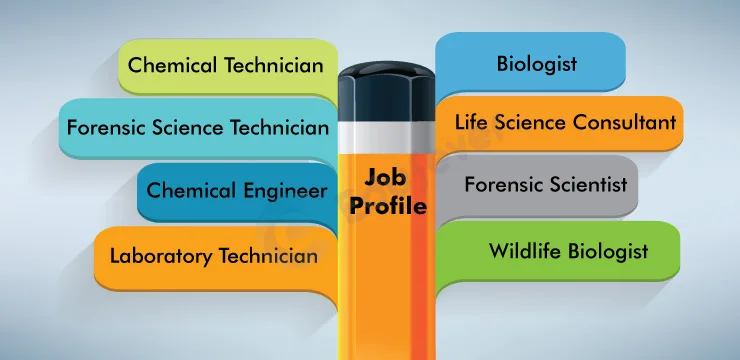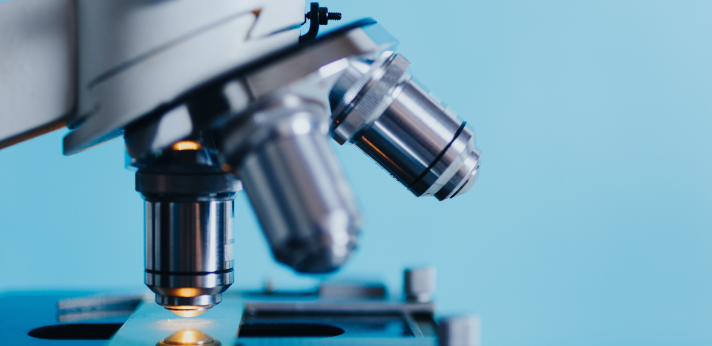Career in biochemistry in India: Biochemistry, a fascinating field at the intersection of biology and chemistry, delves into the intricate chemistry of living organisms. It explores the molecular foundations underlying changes within living cells. By employing methods from chemistry, physics, molecular biology, and immunology, biochemists study the complex molecules in biological material and their interactions, shaping cells, tissues, and organisms.
The central focus of biochemistry lies in comprehending how biological molecules drive the processes occurring within cells and between them. This knowledge extends to the functioning of tissues, organs, and the overall structure of organisms. Biochemistry provides insights into the chemical basis, enabling biological molecules to orchestrate life’s essential functions.
[Index]
Quick Facts
Given below is a short summary of the biochemistry course:
| Particulars | Description |
|---|---|
| Course Name | B.Sc. in Biochemistry M.Sc. in Biochemistry M.Phil. in Biochemistry PhD in Biochemistry |
| Course Duration | UG: 3 Years PG: 2 Years PhD: 3 Years |
| Eligibility | UG: 10+2 PG: BSc degree with 50% marks |
| Career Options | Laboratory Technician, Forensic Science Technician, Chemical Engineer, Chemical Technician, Wildlife Biologist, Biologist, Forensic Scientist |
What is Biochemistry?
Biochemistry is the branch of science that explores the chemical processes within and related to living organisms, and it is a laboratory-based science that combines biology and chemistry. Biochemists can understand and solve biological problems using chemical knowledge and techniques. It also involves the study of the behaviour of molecules to form cells, tissues and, thereby, a living organism. From the name itself, it is evident that biochemistry deals with chemistry within biology, human beings, and all other living organisms.
Who are Biochemists?
Those who study biochemistry courses and research Biochemistry are known as Biochemists. Their area of concentration will be cellular multiplication and differentiation, communication between and within cells and organs, brain function, and the chemical base of inheritance and disease.
Biochemists conduct experiments to study the behaviour of various molecules, such as proteins, lipids, vitamins, hormones, and nucleic acid, in a living cell. Generally, such experiments are conducted inside a laboratory called Biochemistry Lab. A biochemistry laboratory typically contains chemicals and other necessary tools or equipment to perform experiments.
How to Become a Biochemist?
Since Biochemistry is a vast subject, it comes up with lots of other subjects under it. Studying a lot makes PhD and doctorate comparatively easier. Those with a Biochemistry background can take a PhD in subjects like Molecular Science, Cell Biology, Clinical Research, Cancer Biology, etc.
A sample of state and privately funded Colleges in India offer different Biochemistry courses. Admission to a college that provides Biochemistry is not as challenging as other medical degrees.
Various Biochemistry Courses in India
To work as a Biochemist, one can earn a degree in the following Biochemists course:
| Course | Duration |
|---|---|
| B.Sc. in Biochemistry | 3 years |
| B.Sc.(Hons) Biochemistry | 3 years |
| B.Sc. in Medical Biochemistry | 3 years |
| M.Sc. in Biochemistry | 2 years |
| M.Sc.(Hons) Biochemistry | 2 years |
| M.Sc. in Medical Biochemistry | 2 years |
| M.Sc. in Plant Biochemistry | 2 years |
| M.Phil. in Applied Chemistry | 2 years |
| M.Phil. in Biochemistry | 2 years |
| M.Phil. + PhD in Biochemistry | 5 years |
| M.D in Biochemistry | 3 years |
| PhD in Biochemistry | 3 years |
| PhD in Fluid Dynamics | 3 years |
How to get admission to the Biochemistry Course?
- Aspiring candidates should have passed from 10+2 with a minimum of 50% aggregate marks in the science stream (PCB) to be eligible for the Biochemistry course.
- Admission to this course happens on a merit basis and a Biochemistry entrance exam basis. Some colleges have an entrance exam for the applicants, while some do not.
Some of the entrance exams are:- Entrance exams like CUET, LPU NEST, and UPCATET are conducted for undergraduate courses.
- Entrance examinations like CUET, JET, and Amity JEE are conducted for postgraduate courses.
- Entrance examinations like CSIR NET, NBHM, UGC NET are conducted for PhD courses.
Eligibility Criteria
Candidates need to fulfil the given criteria
Eligibility Criteria for UG Courses
The following are the eligibility criteria for students who want to pursue a biochemistry course:
| Particulars | Description |
|---|---|
| Age Limit | The minimum age is 17 years |
| Qualification | 10+2 with a minimum 50% aggregate marks in the science stream |
| Qualifying Entrance Exam | Admission to this course happens on a merit basis and a Biochemistry entrance exam basis. Some colleges have an entrance exam for the applicants, while some do not. Some of the entrance exams are: CUET |
Eligibility Criteria for PG Courses
The following are the eligibility criteria for postgraduate biochemistry courses:
| Particulars | Description |
|---|---|
| Qualification | BSc in Biochemistry with a minimum 50% aggregate marks |
Top Colleges for Biochemistry Courses
Some of the leading institutes offering Biochemistry courses in India with fees are listed below:
| College Name | Location | Fees |
|---|---|---|
| Kirori Mal College | New Delhi | INR 14.6K |
| Sri Venkateshwara College | New Delhi | INR 14.55K |
| St. Xavier’s College | Mumbai | INR 7.19K |
| Queen Mary’s College | Chennai | INR 1,53K |
| Mithibai College of Arts | Mumbai | INR 38.80K |
| Ethiraj College for Women | Chennai | INR 10.06K |
| PSG College of Arts and Science | Coimbatore | INR 7.0K |
| St. Xavier’s College | Ahmedabad | INR 9.98K |
| Kristu Jayanti College (KJC) | Bangalore | INR 80K |
| DRC | New Delhi | INR 19.54K |
Job Opportunities for Biochemistry Course
Lots of Students ask us about jobs in biochemistry. They ask us, where can a biochemist work? And other jobs related to biochemistry. Biochemists can earn a good income by conducting research and experiments. They even work in Biochemistry-related industries, such as food, pharmaceuticals, animals, medicines, agriculture, textiles etc. Today biochemistry is gaining momentum and position because of its ability to make important contributions towards illumination and grasping the DNA Structure.
One of the most interesting and demanding fields of Biochemistry is life science research because the opportunities for innovation are much higher in this field. But a bachelor’s degree is insufficient to start experimenting on your own; it needs practice and further study.
Job Profile
The following is the job profile for the biochemistry course:
| Laboratory Technician | Forensic Science Technician |
| Chemical Engineer | Chemical Technician |
| Wildlife Biologist | Biologist |
| Forensic Scientist | Life Science Consultant |

Role of a Biochemist
The primary job of a Biochemist involves studying the chemistry of living processes at molecular and cellular levels, and it includes cell development, reproduction, death and metabolism also. They study the chemical and physical properties of cells using electron microscopes. Similarly, the following are some roles of a biochemist:
- Collaborating with other departments to design, conduct experiments and record findings
- Study the functions, chemical processes and composition of living organisms
- Write scholarly articles about discoveries and plans to raise funds for research efforts.
- Prepare and distil chemical compounds for public or medical use.
- Present findings to students, colleagues or leadership.
Skills of a Biochemist
To be a biochemist, you should have some of the following skills for efficiency:
- Analytical skills
- Problem-solving
- Critical thinking
- Process creation
- Project management
- Interpersonal skills
- Communication Skills
- Time management
Average Salary for Biochemistry
Average salary along with job profile for biochemistry course are:
| Job Profile | Average Salary |
|---|---|
| Biochemists | INR 8.9 LPA |
| Agriculture Scientist | INR 10 LPA |
| Chemical Engineer | INR 8 LPA |
| Biochemistry Professor | INR 7 LPA |
| Federal Regulator | INR 8 LPA |
Top Recruiting Companies
Top recruiting companies in biochemistry courses:
| Biocon | Panacea Biotech Ltd |
| Wockhardt | Serum Institute of India |
| Dr Reddy’s Laboratories Ltd | Glaxo Smith Kline Pharmaceuticals Ltd |
| Indian Immunologicals Ltd | Glaxo Smith kline Pharmaceuticals Ltd |
| Novozymes | Shanta Biotechnics Ltd |
